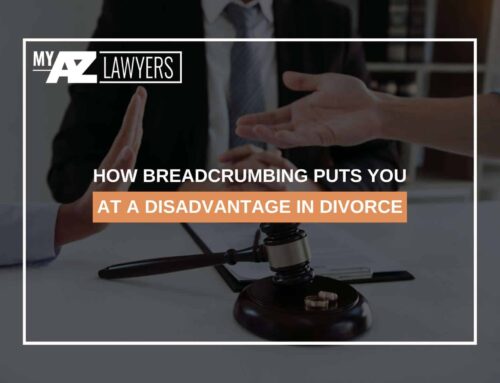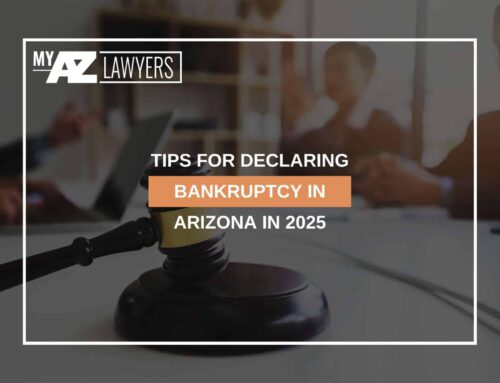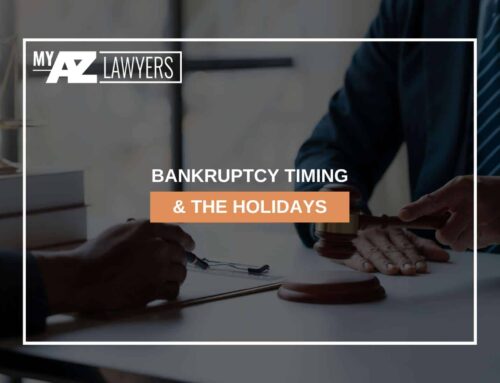Table Of Contents
Who Is Responsible For Your Bank Account After Your Death?
Estate Planning Strategies For Accessing Funds After Death
If you have an account at a bank or credit union, it’s crucial to have a plan in place so your family can access the funds in case you die unexpectedly. This is especially important if you’re the primary income earner for your family. If you don’t have a plan for the distribution of your estate and management of your assets following your death, your family could face unnecessary financial strain waiting for probate court in the 6-12 months after your death.
Consulting with an experienced Arizona estate planning lawyer can help you determine the best options and strategies for protecting your family and managing your assets. There are multiple estate planning strategies that can be used so your family will have easy access to the funds you have worked so hard to earn.

Payable On Death Accounts
A Payable on Death (POD) account is easy to set up at your bank. You’ll name an Arizona bank account beneficiary by completing some paperwork. You can set up a POD for multiple types of accounts, including checking, savings, CDs, and investment. Naming a bank account beneficiary enables your loved ones to transfer available funds from stocks and bonds without waiting for probate court.
Setting up a POD account offers many advantages, especially if you are your family’s primary source of income or work a high-risk job. Your beneficiaries will have immediate access to your bank accounts and investments after your death while avoiding the hassle and delays of probate court.
The Arizona bank account beneficiary whom you name will be able to access your accounts immediately upon your death, giving your heirs and survivors necessary cash flow while waiting for your will to be settled. When you add a beneficiary to your account, you maintain control over your bank accounts; the beneficiary has no access or claim to any of the funds while you
Stocks and bonds: Arizona allows account holders to register their stocks and bonds on a TOD. If you register your accounts in this way, your beneficiary will automatically inherit the account after your death. The beneficiary will work directly with the brokerage company to transfer the account, meaning that no probate court proceedings will be needed.
Vehicle registrations: In Arizona, you can register your vehicle with a TOD so that your beneficiary can immediately inherit the vehicle after your death without going through probate court proceedings.
Real estate: Real estate can also be designated to a beneficiary with a TOD deed, also called a beneficiary deed. The deed will be signed and recorded, and can be revoked at any time, including if you choose to sell the property. The beneficiary has no rights over the property until after your death.
are alive. You can withdraw and deposit money and close the account any time, just like any other bank account. Your beneficiary will only gain access to your POD accounts after your passing. Before the funds can be released, the beneficiary will generally need to complete a claims form, provide identification, and submit a copy of your death certificate.
Transferable On Death Accounts
A transferable on death (TOD) form allows you to transfer assets to named beneficiaries whom you choose. The process of setting up a TOD is similar to setting up a POD. Your Arizona estate planning attorney can help you contact the entities who hold your assets and complete the necessary paperwork to name the beneficiary.
A TOD can be set up with a variety of accounts:Arizona Estate Planning
Working with an experienced Arizona estate planning attorney is the best way to effectively and legally draft estate planning documents that work for your financial situation and protect all of your assets. It’s important to realize that PODs and TODs are only one tool in your estate planning toolbox and may not be the best option for everyone. Alternatively, they may be a good idea now but become complicated later. For example:
- If you name your spouse a beneficiary and then divorce later, the POD may be canceled.
- If your beneficiary has died, their heirs can inherit, but they will need to go through probate court.
- If there is a challenge or disagreement over your estate, the POD can be challenged in court.
- If there is an oversight and a POD contradicts your will, probate court may be necessary.
The best way to avoid these mishaps is to work with an attorney to carefully draft a comprehensive estate plan that considers all of your assets and uses a variety of estate planning measures, such as wills, trusts, and more.
Contact Arizona’s Leading Estate Planning Attorneys
The experienced attorneys at My AZ Lawyers are ready to work with you on all of your estate planning needs and help you determine the best way to manage your assets after your death. We will carefully examine your situation, discuss your goals, and devise the best strategy to meet your wishes. Contact My AZ Lawyers today to schedule your complimentary consultation and gain peace of mind knowing that your family and assets are protected!
LISTEN TO THE PODCAST VERSION OF THIS ARTICLE
Arizona Offices:
Mesa Location:
1731 West Baseline Rd., Suite #100
Mesa, AZ 85202
Office: (480) 448-9800
Email: [email protected]
Website: https://myazlawyers.com/
Phoenix Location:
343 West Roosevelt, Suite #100
Phoenix, AZ 85003
Office: (602) 609-7000
Glendale Location:
20325 N 51st Avenue Suite #134, Building 5
Glendale, AZ 85308
Office: (602) 509-0955
Tucson Location:
2 East Congress St., Suite #900-6A
Tucson, AZ 85701
Office: (520) 441-1450
Avondale Location:
12725 W. Indian School Rd., Ste E, #101
Avondale, AZ 85392
Office: (623) 469-6603












